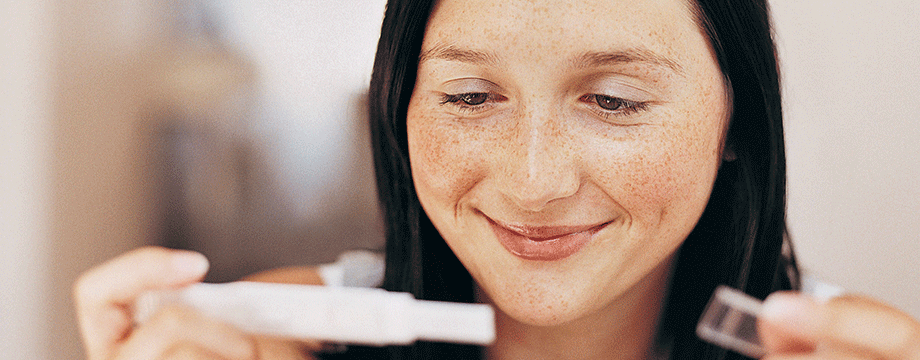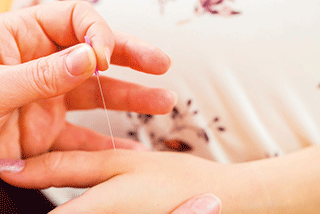The natural fertility guide

How to support your chances of conceiving naturally
Making the decision to start a family can be an exciting and nerve wracking time for parents-to-be. While many go on to enjoy healthy and happy pregnancies and births, many couples experience the stress and heartbreak of fertility problems. According to the NHS, around one in seven couples in the UK may experience problems conceiving – this equates to approximately 3.5 million people. Here we speak to a range of fertility experts to get their tips on supporting your fertility through diet, supplements and therapies.
Eat yourself pregnant
“When you’re trying naturally, or preparing for IVF, it might seem like you are not fully in control of your own body, as a lot of it seems left to chance,” says Zita West, the founder of the Zita West Fertility Clinic (www.zitawest.com) “But one of our mantras here at the clinic is ‘eat yourself pregnant!’ Your diet is one of those things that you can actually control. A healthy diet is absolutely vital for a healthy pregnancy, and by making little changes in regards to what you eat, you could be helping your chances of conception more than you may realise.” Here are Zita’s top dietary tips:
Include fats in your diet
Lots of people assume that all fats are bad, but it’s just not true. Like most things with your diet, it’s all about moderation. Of course, you should be careful about the amount of saturated fats you consume from animal products like butter and cheese, but you do need some! And some fats are better for you than others. Make sure to include the healthy fats in your diet, like omega-3s from oily fish and also healthy fats from olive oil, nuts and seeds.
Avoid added sugar
In the attempt to avoid fats, people often choose low-fat products like low-fat yogurts. They may seem like the healthier choice but, more often than not, they have a lot of added sugar in them. Not only is added sugar bad for your egg quality, it can destabilise your blood sugar which really needs to be maintained when trying for a baby.
Eat real foods
Try to ditch the takeaways and other processed foods for lots of whole grains, nuts and seeds (which are not only full of healthy fats but also a tonne of vitamins and minerals) and lots of vegetables, salads and fruits. The latter in particular will be your main source of antioxidants that will protect your eggs and sperm as they mature.
7 supplements to support fertility
“As well as eating a healthy diet, there is now a great deal of scientific knowledge about the use of nutritional supplements and their beneficial effects on fertility,” says leading nutritionist Dr Marilyn Glenville PhD (www.marilynglenville.com). Here are seven key vitamins and minerals.
• Folic Acid
It is well known that folic acid can prevent spina bifida and, together with the other B vitamins, is necessary to produce your baby’s healthy genetic material.
• Zinc
Zinc is the most widely-studied nutrient in terms of fertility for both men and women. It is an essential component of genetic material and a zinc deficiency can cause chromosome changes in either men or women, leading to reduced fertility and an increased risk of miscarriage.
• Selenium
Selenium is an antioxidant that helps to protect your body from highly reactive chemical fragments called free radicals. For this reason, selenium can prevent chromosome breakage which could stop you getting pregnant or increase the risk of miscarriage. Good levels of selenium are also essential for healthy sperm.
• Vitamin E
Vitamin E is another powerful antioxidant and has been shown to increase fertility when given to both men and women.
• Amino Acids
Two amino acids, L-arginine and L-carnitine, are particularly important for male fertility. L-arginine is essential for healthy sperm production and protects the sperm against oxidative damage. The higher the levels of L-carnitine in sperm cells, the higher the sperm count and motility.
• Vitamin C
Vitamin C is an antioxidant and we know that women who take vitamin C whilst undergoing IVF have a significantly increased pregnancy rate. Vitamin C is also good for men as can it help to increase sperm counts by up to a third.
• Vitamin D
Vitamin D helps to balance your immune system which is important in getting and staying pregnant. It also helps to improve sperm motility and the number of normal sperm. It is important to get your vitamin D levels checked with a simple home finger prick test. See www.naturalhealthpractice.com for more information.
Fertility acupuncture

“Fertility acupuncture has become widely recognised on its own or in conjunction with western reproductive medicine, such as IVF,” says John Tsagaris, internationally renowned acupuncturist and founder of SkinPointEight. “It is often advised for a positive therapeutic outcome up to 65 per cent, according to recent reports. Additionally, acupuncture facilitates blood flow to the endometrium, addresses underlying conditions and focuses on supporting and nurturing the patient to prepare herself for conception. Further nutritional or herbal supplementation may be suggested for a more comprehensive approach depending on the treatment protocol that will be chosen for the individual case.
Acupuncture can assist with the following:
- Regulating and establishing a healthy menstrual cycle
- Helping with the release of natural hormonal responses that regulate stress levels
- Improving blood circulation to the pelvic area
- Assisting with mid-cycle regulation and follicle maturity irregularities
Whilst every patient must be treated on a case-by-case basis, the scope of different techniques and herbs that can be administered opens up a vast number of bespoke treatment plans available for those tackling infertility issues.
Did you know?
If the man in your life is carrying a bit of extra weight then it might be time to send him down the gym. “Extra pounds affect sperm quality, decrease their ability to swim, reduce sperm count and increase damage to DNA,” says nutritionist Cassandra Barns. “Men who are overweight suffer from hormonal imbalance, which can lower their sex drive.”
“Iron is involved in the transport of oxygen, via blood cells, throughout the body,” says Sophie Claessens, a dietitian with VavistaLife (www.vavistalife.com). “Anaemia (low iron levels) can therefore affect how efficient all processes in the body are, including fertility. Ensure you’ve optimised your chances fertility-wise by following a healthy, balanced diet. Include iron-rich red meat in the diet up to twice per week and other vegetarian sources such as beans, chickpeas, lentils, fortified breakfast cereals or dark green leafy vegetables daily. Vitamin C can enhance iron absorption so have a glass of orange juice with one of your meals, which contains iron, each day.”
Read previous Your Health articles here...
Read articles from our latest issue here...